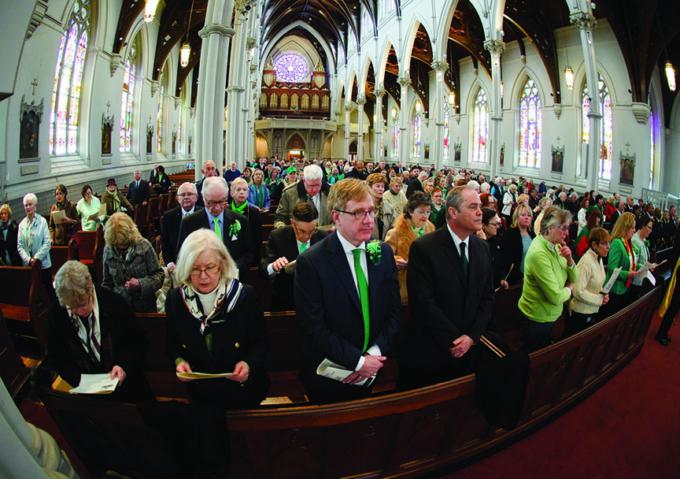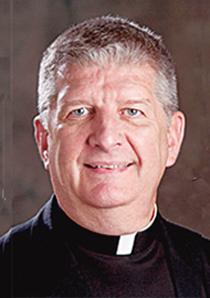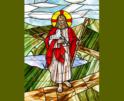
Faith
Participation simply is bringing and involving your whole self -- heart, mind, soul -- to the liturgy, principally to Mass but to all other sacramental and liturgical celebrations.

O'Grady
The Constitution on the Sacred Liturgy of the Second Vatican Council, "Sacrosanctum Concilium," is perhaps the most quoted of the documents of that council. We will be observing its 60th anniversary on Dec. 4, 2023. Many of the goals and objectives which the council fathers set have been achieved, others are in process, and still others are what we might best call "long-range" that we need more time and effort to implement.
One of these later goals is active participation in the liturgy. From No. 14 of that conciliar document, here is the "participation" program set out for us:
"Mother Church earnestly desires that all the faithful should be led to that fully conscious, and active participation in liturgical celebrations which is demanded by the very nature of the liturgy. Such participation by the Christian people as "a chosen race, a royal priesthood, a holy nation, a redeemed people" (1 Peter 2:9; cf. 2:4-5), is their right and duty by reason of their baptism.
In the restoration and promotion of the sacred liturgy, this full and active participation by all the people is the aim to be considered before all else; for it is the primary and indispensable source from which the faithful are to derive the true Christian spirit; and therefore pastors of souls must zealously strive to achieve it, by means of the necessary instruction, in all their pastoral work."
Ambitious.
All of the council's liturgical efforts have a history. Most agree that the initial hints at a renewal of the Church's liturgy began in the first part of the 19th century with the revival, under the guidance of Benedictine monks at the French Abbey at Solesmes, of Gregorian Chant.
The invitation to "that fully conscious, and active participation in liturgical celebrations which is demanded by the very nature of the liturgy" first appears in a papal document of Pope St. Pius X, who issued the call to participation, especially by sacred music.
Either in its full form or abbreviated versions, Pope Pius's call echoes through subsequent papal documents of Pius XI, Pius XII, and Pope St. John XXIII. Pius XII has the distinction of issuing the first papal encyclical dedicated entirely to the liturgical life of the Church, "Mediator Dei."
Participation simply is bringing and involving your whole self -- heart, mind, soul -- to the liturgy, principally to Mass but to all other sacramental and liturgical celebrations.
Jump for a minute to a secular event in which you might participate. Let's take a sporting event. Most of us are spectators but the athletes hear our support and respond to it. As "mere" spectators, we are really participating. We watch. We listen. We jump up and applaud. We sit silently. We "boo." We may wave a fan towel. We arrive on time. We stay for the last play. We even sing the national anthem, the team fight song, or "Sweet Caroline." We are part of the event.
There are many other events in life in which we participate, either to a greater or lesser extent, but we do participate.
No less in the liturgy should we -- all the ministers, all the assembly -- bring our whole selves.
A few observations: Participation does not necessarily mean "doing something"; sometimes, it's listening (not just hearing). Other times, it is being quiet, standing, kneeling, or responding verbally with words or music. Or it could be moving in a procession: bringing gifts, or going to Holy Communion.
Next time you are at Mass in church, notice all the participating that is happening -- by you, with others, by the readers, music ministers, deacon, and priest.
In future columns, we'll look more intensely at some aspects of our participation and how we might all do much better in some of those aspects.
We all have much to contribute and much to do to realize that elusive goal set by the Council "that fully conscious, and active participation in liturgical celebrations which is demanded by the very nature of the liturgy."
I will not have a column before the Solemnity of the Most Holy Body and Blood of Christ, also known as Corpus Christi (June 11). Our bishops have a Eucharistic Revival in process, and beginning on that solemnity, the focus will be on the Eucharist in the parish. First and foremost is the worthy and reverent celebration of Sunday Mass. Eucharistic devotions such as holy hours and processions are also encouraged.
Check these websites for more help:
The Federation of Diocesan Liturgical Commission's (FDLC) "Liturgical Preparation Aid: Solemnity of the Most Holy Body and Blood of Christ" at fdlc.org, www.eucharisticrevival.org from the USCCB, and www.dowr.org/EucharisticRevival/index.html from the Diocese of Winona-Rochester, Minnesota.
Recent articles in the Faith & Family section
-
What is the church's position on the treatment of animals?Jenna Marie Cooper
-
Popular devotions and the liturgyFather Robert M. O’Grady
-
The Fight for Our FaithMaureen Crowley Heil
-
The shepherd's voiceScott Hahn
-
Scripture Reflection for April 21, 2024, Fourth Sunday of EasterJem Sullivan


















